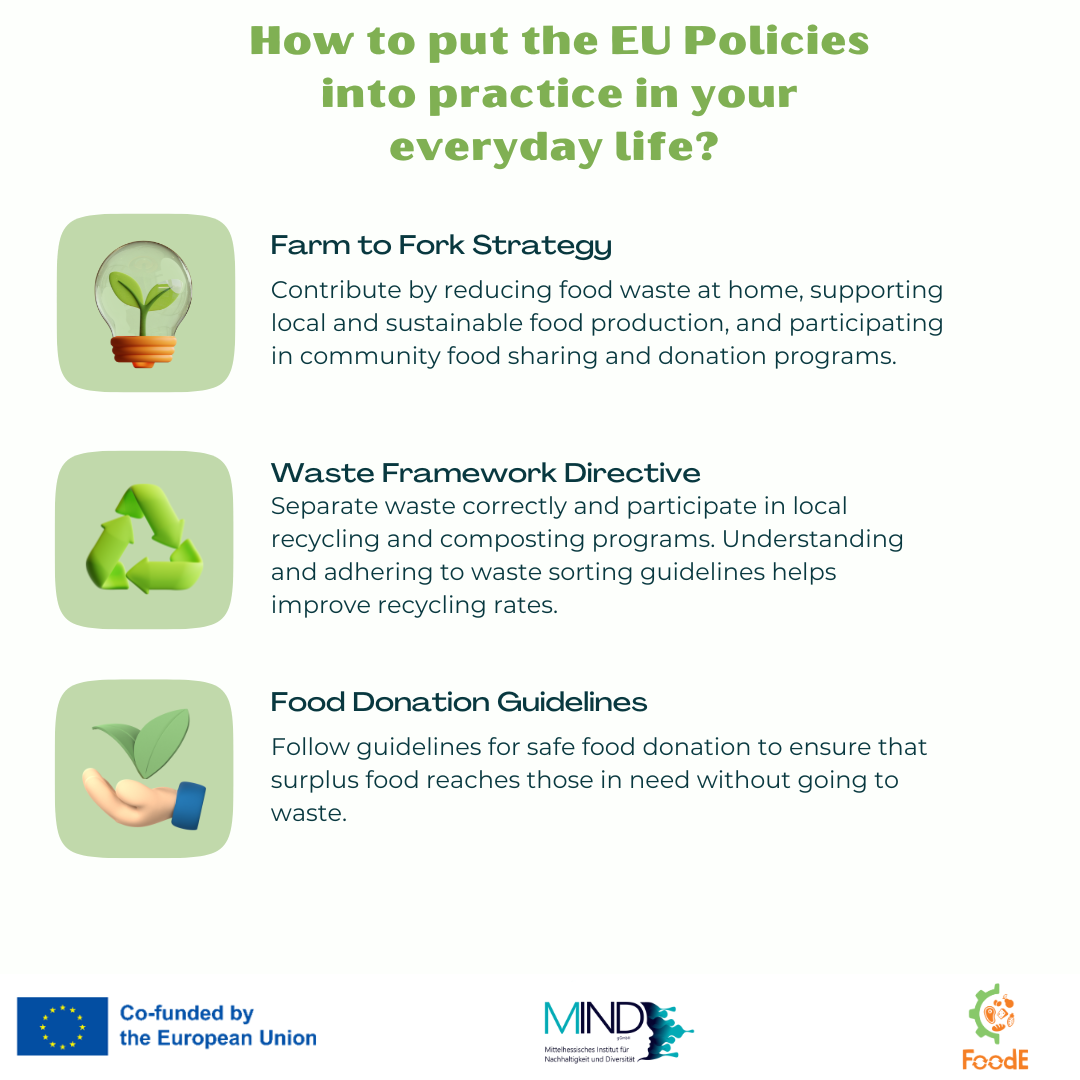This blog post aims to provide a comprehensive overview of the EU’s efforts to reduce food waste and promote sustainability. It highlights the key policies and encourages individuals to take actionable steps in support of these initiatives.
Overview of the Key EU Policies Targeting Food Waste and Food Loss
EU Circular Economy Action Plan
The EU Circular Economy Action Plan is a comprehensive strategy that aims to reduce waste and create a sustainable, resource-efficient economy. Key measures related to food waste include:
- Promoting Sustainable Food Production and Consumption: Encouraging practices that reduce waste from farm to fork.
- Enhancing Food Waste Measurement and Reporting: Improving data collection on food waste to track progress and implement effective measures.
- Supporting Food Donation and Redistribution: Establishing guidelines and incentives for donating surplus food to charities and food banks.
Farm to Fork Strategy
Part of the European Green Deal, the Farm to Fork Strategy aims to create a fair, healthy, and environmentally friendly food system. Its specific goals related to food waste include:
- Reducing Per Capita Food Waste by 50% by 2030: Aiming to cut food waste at both the retail and consumer levels.
- Encouraging Sustainable Agricultural Practices: Promoting farming techniques that reduce food loss during production.
- Improving Food Safety and Nutrition: Ensuring that all food, including surplus food, meets safety standards and supports public health.
Waste Framework Directive
The Waste Framework Directive sets the legislative framework for waste management in the EU. It includes specific provisions to combat food waste:
- Mandating Food Waste Prevention Programs: Requiring member states to develop and implement food waste prevention plans.
- Encouraging Waste Hierarchy Principles: Prioritizing actions like prevention, reuse, and recycling over disposal.
Food Donation Guidelines
To facilitate food donation and reduce food waste, the EU has established guidelines that include:
- Legal Clarity for Donors: Providing clear regulations and protections for food donors to encourage more businesses and individuals to donate surplus food.
- Safety Standards for Donated Food: Ensuring that all donated food is safe and suitable for consumption.
The EU has made significant strides in reducing food waste through these policies. Key achievements include:
- Increased Food Donation: Growth in food donation initiatives across member states, reducing the amount of food going to waste.
- Enhanced Awareness and Education: Greater public awareness of food waste and food loss issues and how to address them.
- Improved Data Collection: Better measurement and reporting of food waste, leading to more targeted and effective interventions.
Looking ahead, the EU aims to further reduce food waste by continuing to implement and refine these policies. The goal is to create a sustainable food system that minimizes waste, conserves resources, and ensures food security for all.
What we as individuals can take from the EU Policies
The European Policies are not only guidelines for the European Union Member States but can also function as guidelines for individuals.
As individuals, we can support these efforts by adopting circular economy principles in our daily lives, such as reducing waste, composting, and supporting local food producers. Together, we can contribute to a more sustainable and waste-free future.
Examples of Circular Economy Actions from EU Policies:
Farm to Fork Strategy |
|
Waste Framework Directive
|
|
Food Donation Guidelines |
|
Together, we can contribute to a more sustainable and waste-free future.

